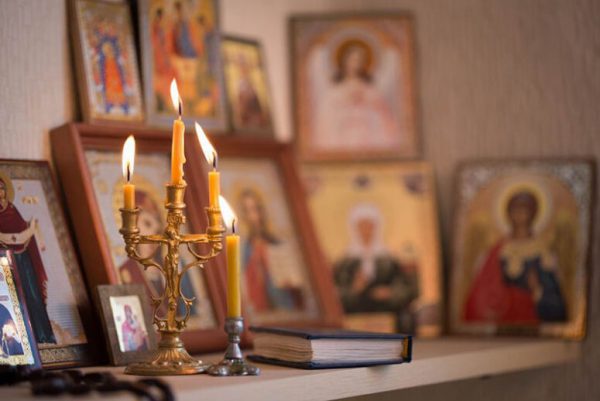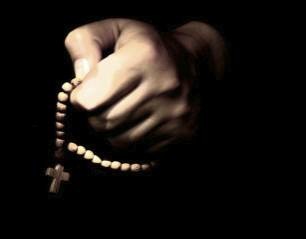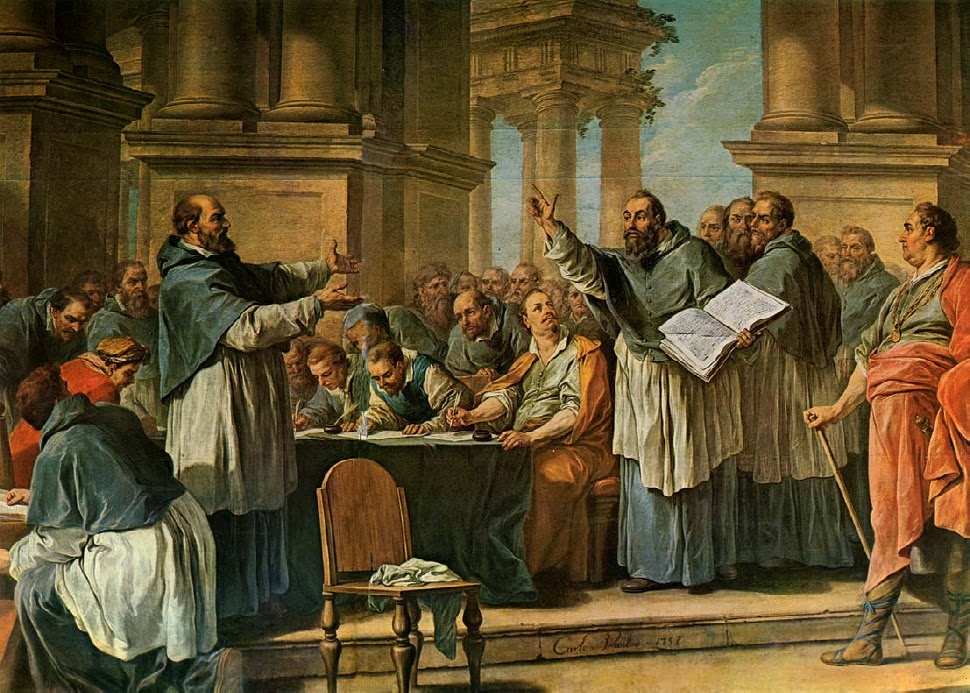There seems to be a lot of discussion on the internet recently about "marriage or monasticism." Some of this is healthy and good, and some of it is destructive and dangerous. In particular, the rigorist approach that suggests there are
only these two paths to salvation is, in my opinion, anachronistic, narrow and wrong. This post, I pray, will detail the short version of why that is.
First, let us be clear, monasticism and marriage are two paths to salvation that are specifically and liturgically blessed by the Church. That much is true. One might say they are the norms. That is, what we tend to expect is that those who have no plans to get married because they have chosen not to be married should probably, and normally, seek out a monastic community. So far, so good.
The reasons for this are multitude, but briefly include the idea that we are to seek out our salvation in community with others, learning to give to others of ourselves. Marriage in this sense is neither a sex-based nor power-based institution as it perhaps was in medieval times, but a true martyrdom where we die to our spouse every day of our lives. In a monastery, the brothers do the same to each other, and obviously a monastic community thrives neither on sex nor power. So there are some obvious parallels. And a person who is open to neither marriage nor monastic life may have legitimate spiritual issues that raise concerns and ought to be addressed.
It is also true that the so-called "single life" is not something that was known in Christian antiquity, or even until recently. So searching the Fathers for quotes on how to be a chaste single person is not as likely to bear fruit as quote mining them for thoughts on monasticism versus marriage. That is not to say the Scriptures do not speak of this, because monasticism was unknown to the Apostles, and yet St. Paul has much to say about the celibate life. The point is, a person who is single and not open to marriage, and also single and not open to a monastic life, may struggle with selfishness, self-centeredness, inability to give of himself to others, etc.
The key word in both of these statements above is "may." Because as we know, there are those who are open to marriage, but simply waiting for God to present them a proper spouse. There are those who are open to marriage who, for various reasons, may struggle to find a partner. And there are those who fall into other categories for whom marriage may be undesirable at present or unlikely for whatever reason. That does not mean those people should become monastics, and it certainly does not mean they must become monastics.
Despite this, of late, I have seen multiple internet personalities (I will not name them because I do not wish to draw attention to what I think is their error), who suggest that marriage and monasticism are not merely two paths to salvation blessed by the Church, but in fact they are the only paths blessed by the Church, such that unmarried, non-monastics must be seeking to either get married or join a monastery. It is my opinion that this is a flawed understanding of the history of the Church, the Holy Scriptures, the writings of the Fathers and the Orthodox life.
As a matter of history, monasticism developed in the late 3rd century. It grew out of the peasant class and was based on a desire to separate from society. The movement was concerning to bishops, who felt it threatened the unity of the Church; however, over time a greater appreciation for monasticism began to develop as the bishops witnessed the fruits of this life. Early monasticism was eremitic (the word "monastic" derives from the Greek word μόναρχος, meaning "solitary." That is, early monastics were not living in monastic communities, but were hermits. So right away we can see that this notion that one must be married or monastic because salvation requires community ignores the very history of monasticism itself. St. Anthony of Egypt went into solitude in the desert, and came out able to heal and reconcile enemies, which showed forth the fruits of his solitary engagement in the spiritual warfare. Around the same time, cenobitic monasticism began to develop. When people say "there are two paths," they typically mean marriage versus cenobitic monasticism. They do not typically mean wandering off into the desert without a tonsure, as St. Anthony did (or as St. Mary of Egypt, as another example, did). So the attempt to limit the Christian life to these two narrow forms is historically flawed.
Moreover, as noted, monasticism developed in the late 3rd century. This means for more than a quarter millennium, there was no Christian monasticism. There were earlier Christian ascetics, but none who lived a formal monastic life, either eremitic or cenobitic. There was an actual order of widows in the early Church, but they did not live as a monastic community as we think of today. There were almost certainly unmarried Christians who were not widows. What to make of this? Well, for starters, unless we are willing to say those people are damned because God had not yet created the monastic life, we must assume there is at least one other path to salvation. So it is hard to suggest that monasticism is required by our God, but for nearly 300 years He hid that path from His people so that those who preceded the advent of monasticism are outside salvation.
Perhaps the biggest problem with this approach, however, is that not all are called to the monastic life, and you do not discern that calling merely in opposition to marriage. That is, just because you are not married, and not likely to become married, does not mean you have been called to live out your days in a monastery. For one, nobody is entitled to live in a monastery. One must be blessed by the Abbot or Abbess, and one must be received. One who joins a monastery and is deemed unfit for monastic life may be asked to leave. So what are people who are unable to find a marriage partner and also unable to find a monastery that will have them to do?
I hope I have made clear above, I have no issue whatsoever with marriage (I am, after all, married) or monasticism. I do think it is worth noting that this notion that there are only two paths, and that single Orthodox Christians who are open to marriage but for whatever reason find it unlikely they will find a spouse must rush off to be tonsured or lower their standards drastically to find a spouse, is nonsense. If you are Orthodox and single, it's okay. If you want to join a monastery, you should. But you don't have to, nor do you have to rush into marriage simply to "pick a path." There are two paths that are liturgically blessed, but those who are not on a liturgically blessed path are still on a path to salvation. Please don't let anyone tell you otherwise.





